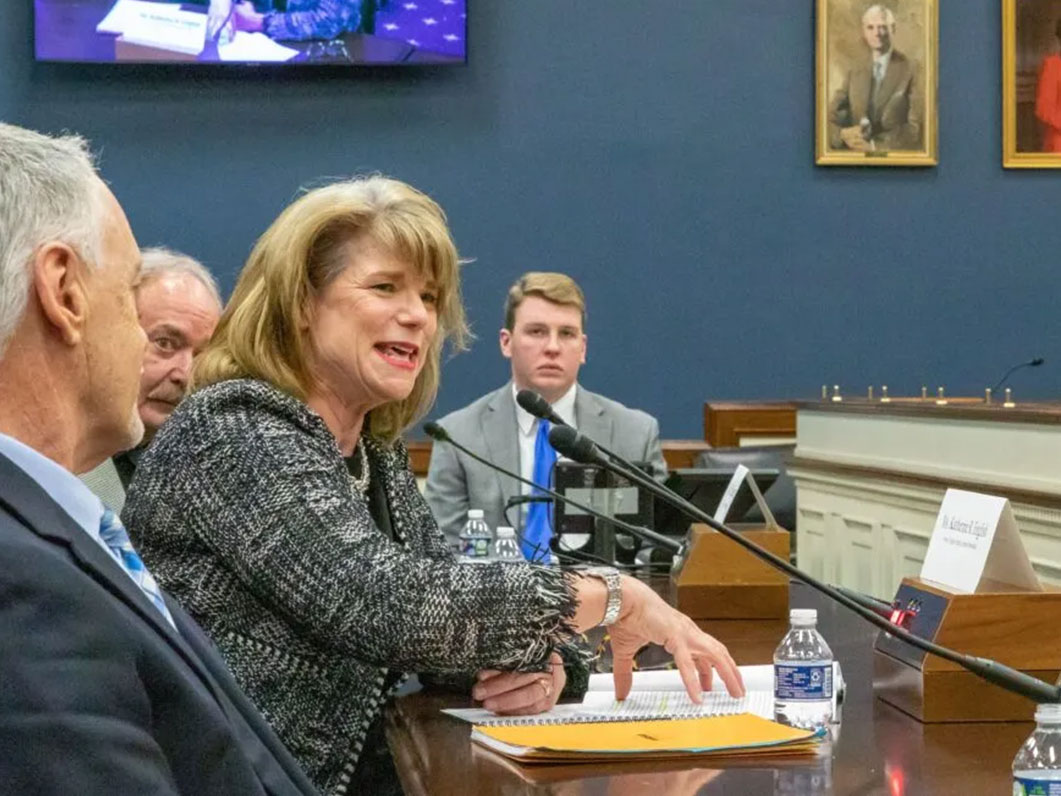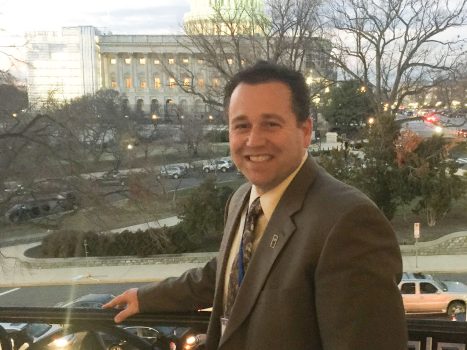(Editor’s note: In an effort to provide our readers with current news from Capitol Hill, OnionBusiness relies on agriculture industry leaders, lobbyists and governmental agencies. The American Farm Bureau Federation has been vigilant in its coverage of the Waters of the U.S., which has been finalized by the EPA and Army Corps of Engineers and will be effective March 20. See epa.gov/wotus for more information on regulation. The following story explains the plight of a farmer first-hand as the result of government overreach. Our thanks to the AFBF for its representation of farmers and ranchers, including the nation’s onion growers.)
Florida Farm Bureau member, rancher, small business owner and environmental lawyer Katherine English presented her first-hand account of the implications of the federal government’s Waters of the United States to the House Committee on Small Business on March 8.
A March 9 release from the American Farm Bureau Federation featured Katherine English, who grows citrus and raises cows and calves in Fort Myers, citing her testimony as part of a panel comprised of small business owners. The release said English provided an overview to the Committee “of the uncertainty faced by farmers, ranchers, homebuilders and more during the hearing titled “Small Business Perspectives on the Impacts of the Biden Administration’s Waters of the United States (WOTUS) Rule.”
During her opening statement to the Committee, English said, “Farmers and ranchers’ livelihoods depend on healthy soil and clean water.” She said while farmers and ranchers support the Clean Water Act, they do not support WOTUS, which creates “unmanageable risk and confusion for farmers.”
She continued, “Farmers have struggled with uncertainty for decades, with near-constant rulemaking and litigation in regard to WOTUS. A workable definition of WOTUS is critically important to our members and they are extremely disappointed that the Biden administration’s new WOTUS rule fails to provide that.”
The release said English testified that “the proposed WOTUS rule greatly expands the federal government’s reach over private property and that the significant nexus test, currently under scrutiny in the U.S. Supreme Court, allows the Environmental Protection Agency and U.S. Army Corps of Engineers to aggregate and regulate waters that would not otherwise be subject to federal jurisdiction.”
“It is impossible, with this new rule, for any farmer or rancher to know whether their irrigation drainage infrastructure in their fields are jurisdictional waters requiring Clean Water Act permits,” English said.
“Considering these features jurisdictional waters risks federal regulation of everyday farm and ranch activities.”
In answering a question from Chairman Roger Williams (R-Texas), the release said that English summarized the difficulty of interpreting the proposed rule: “This rule is simply unknowable unless you have hired a lawyer, a biologist, an engineer, and — in some instances — a geologist.”
“The American Farm Bureau Federation is the Voice of Agriculture® and our members – millions of farm and ranch families from across the country – care deeply about the health of our environment,” English told the lawmakers. “The success of our lives and businesses depends on healthy soils and clean water, as most farmers live on the land we farm and ranch. We support the objectives of federal environmental statutes such as the Clean Water Act (CWA). What we cannot support is the continuing ambiguity of the location of the line between federal and state jurisdiction that has created confusion for landowners for decades. We have lived in a world of regulatory uncertainty for decades due to near-constant rulemakings that bounce back and forth, redefining the scope of the CWA. We have seen WOTUS definitions change with each new Administration, guidance documents offered and then rescinded, and confusing court orders that generate more questions than answers. Landowners, small businesses, and American families are the ones who suffer the most.”
She also said, “The definition of WOTUS is critically important to farmers and ranchers across the country which is why AFBF and state Farm Bureaus have participated in numerous rulemakings, legislative proceedings and litigation on this issue for decades. Farming and ranching are water dependent enterprises. Whether we are growing plants or raising animals, farmers and ranchers need clean water. For this reason, so many of us grow our crops and raise our animals on lands where there is either plentiful rainfall or adequate water available for irrigation. There are many features on those lands, however, that may only be wet when it rains and that may be miles from the nearest “navigable” water. Farmers and ranchers managing their lands need clarity about whether these features constitute a regulated water body. We cannot afford a mistake or misunderstanding. The consequences can be financially devastating if a violation is determined to exist.”
A YouTube video recording of the full hearing is available here. English’s written testimony in downloadable PDF is available here.
photo credit: AFBF photo by Philip Gerlach


